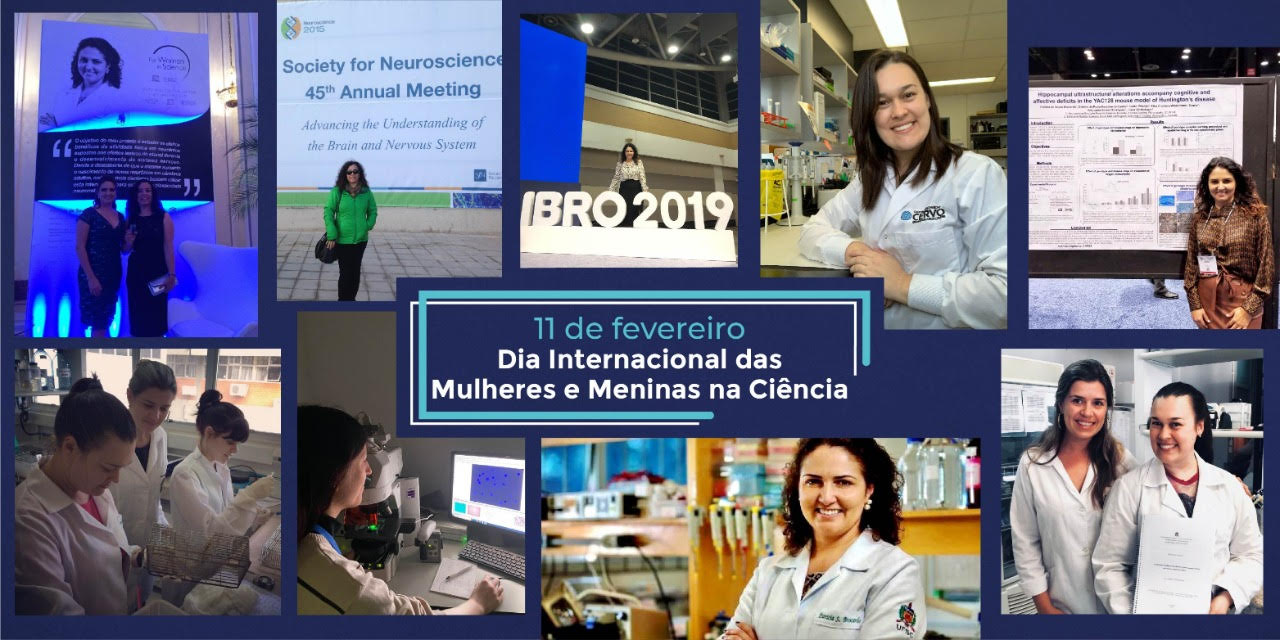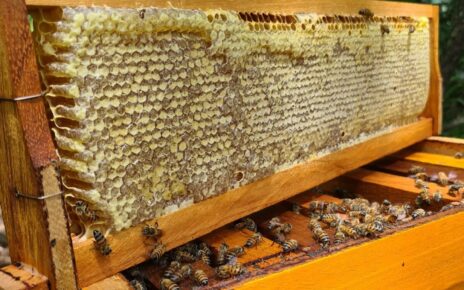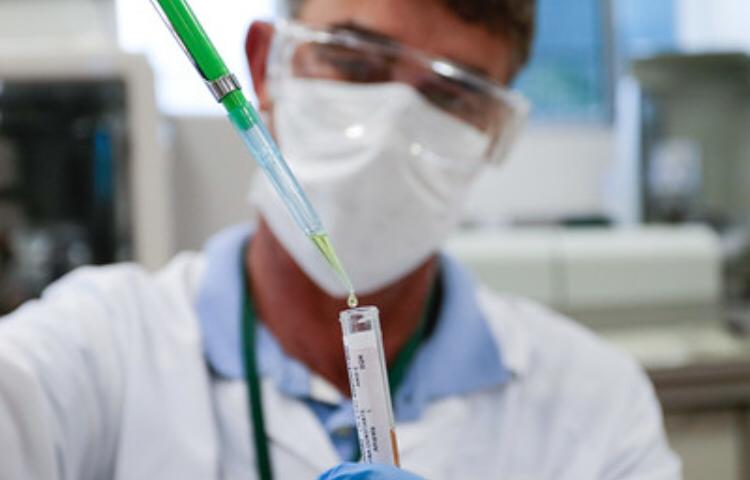When it comes to science, laboratories, experiments in the most different areas, the first image that comes to mind is rarely that of a woman. And this is no accident. Less than 30% of researchers in the world are women, according to data from the United Nations (UN). To change these indicators, the organization launched in 2015 the International Day of Women and Girls in Science, celebrated on February 11.
In Santa Catarina, researchers from different areas show that it is necessary to break limits and encourage new generations of girls and women to advance more and more in science. One of the references in this fight is the pharmacist Ana Lúcia Rodrigues, a professor at the Federal University of Santa Catarina (UFSC). PhD in Biochemistry, she coordinates a research group on the neurobiology of depression that has researchers at various levels, from undergraduate and master’s degrees to doctorates and post-doctorates.
“In the area of biochemistry, we have a significant number of female scientists, as they are more present in biological sciences and health, which does not occur in other areas such as physics and mathematics, for example. Although the number of female scientists is significant in my area, there is a certain gender inequality in the number of women who reach the top of their careers”, explains the researcher.
Since she started at UFSC, Ana has encouraged the training of new scientists. She also mentored three researchers who won the L’Oréal-ABC-Unesco award for Women in Science. Among them are Manuella Kaster and Patrícia Brocardo, who are now professors at the same university.
Patrícia is a professor in the Department of Morphological Science and is a sub-coordinator of the Post-Graduate Program in Neuroscience at UFSC, where she supervises masters and doctoral students. In his research, he investigates therapeutic strategies that can increase neuroplasticity, which is the capacity that our brain has to adapt during our life. She researches how stress and alcohol use in development can affect adult neuroplasticity and how neuroplasticity is affected in neuronal death processes, as in the case of Huntington’s disease.
The Neuroplasticity Laboratory, coordinated by Patrícia, is currently formed only by women. It has a student of scientific initiation, five master’s students, a doctoral student and four teachers. “I do my part by helping to train young scientists and encouraging scientific discussion through weekly meetings and scientific dissemination in international and national magazines“, comments the researcher.
Manuella is another one of Ana Lúcia’s students winning the L’Oréal-ABC-Unesco award. Since 2014 she coordinates a UFSC Translational Neuroscience research group. With a team of seven people, she studies the impact of stress on the brain and the predisposition to psychiatric illnesses.
When he entered the Biological Sciences course he had a natural interest in research. “From the first contact, I fell in love with the job and knew it was the path I wanted to follow”, he says.
But it took dedication and commitment for many years. For this reason, Manuella thinks it is important to show that Santa Catarina has countless women coordinating research. “Increasing the visibility of women scientists always has a positive impact, it encourages girls to be interested in their careers, it shows how to start and what are the possibilities for acting”, he concludes.
New generations
The careers of Ana Lúcia, Patrícia and Manuella are inspiration for the new generations of researchers like Evelini Plácido and Fernanda Neutzling Kaufmann.
Evelini is doing a PhD in Neuroscience at UFSC and researching the birth of new neurons in the adult brain, which would help in the treatment of diseases such as Huntington and Parkinson. “Since I was a child, I wanted to learn new things. I always thought that learning something new should happen throughout life and not just during school years. So I thought what can I be that will provide me to be always learning? Scientist!”, He remembers.
Guided by Professor Patrícia, Evelini argues that dates such as the International Day of Women and Girls in Science help to show the disparities between men and women and opens space for discussions that can reverse this inequality. “All of this ends up enabling greater female participation in scientific production“, she adds.
Far from Brazil, Professor Manuella’s former student, researcher Fernanda Neutzling Kaufmann is dedicated to postdoctoral studies at the Brain Research Center at the University of Laval in Quebec, Canada. “My research seeks to uncover the mechanisms by which inflammatory molecules can reach the brain during depression, causing inflammation in the brain and contributing to all the negative physiological and behavioral effects that are observed in this pathology. I believe that if we find a way to inhibit these inflammatory molecules from reaching the brain in large quantities, we can develop a new therapeutic class for the treatment of depression”, summarizes the young woman.
These five researchers, in addition to advancing in a prominent career in science, in the search for solutions to problems that affect health and society, are incentives for more women and girls to enter the area. “For girls who want to be scientists, I tell them not to give up on their dreams. The journey of a lifetime as a scientist is very pleasant and rewarding, with constant exchange of knowledge, constant learning and personal development. In addition, seeing the results of your work that can improve the world or, at least, bring a better quality of life for some people is very rewarding”, concludes Fernanda.
Online event
The Federal University of Santa Catarina (UFSC) will hold an online event to mark the International Day of Women and Girls in Science. The opening will have representatives from the Foundation for Support to Research and Innovation of the State of Santa Catarina (Fapesc) and the Brazilian Society for the Progress of Science in Santa Catarina (SBPC-SC).
Those interested in following can access the UFSC TV channel on YouTube from 16:30. At the same event, an award will be launched for women scientists at different stages of their careers, from beginners to seniors.
According to the president of Fapesc, Fábio Zabot Holthausen, the participation of women in the actions of science, technology and innovation is essential to guarantee diversity of views. “We have seen a great participation of women in the actions of the foundation, from the submission of proposals to the coordination and participation of research teams”, he comments.
The Foundation’s Science and Research manager, Deborah Bernett, also points out that women are advancing in their academic career. “Stimulating younger generations is essential for the awakening of science in girls and women. There is another paradigm on the scene and the challenge and it is up to us to recognize this fact and contribute to the more equitable balance of the female career in research” , she defends.
Fábio and Deborah will participate in the UFSC live next Thursday representing Fapesc to talk about promoting research led by women in Santa Catarina.



